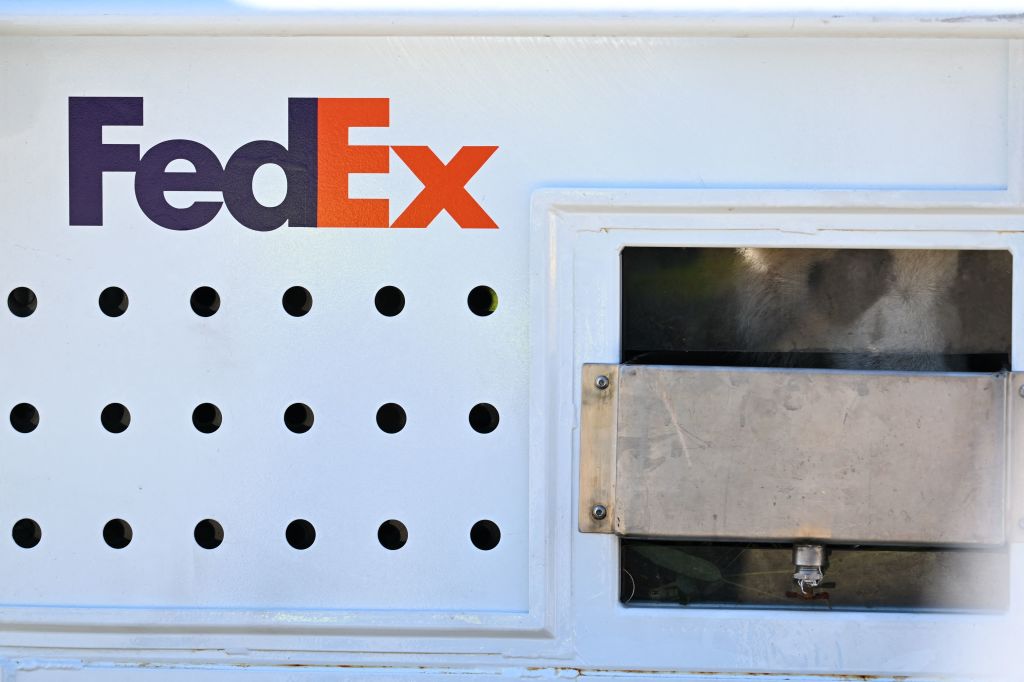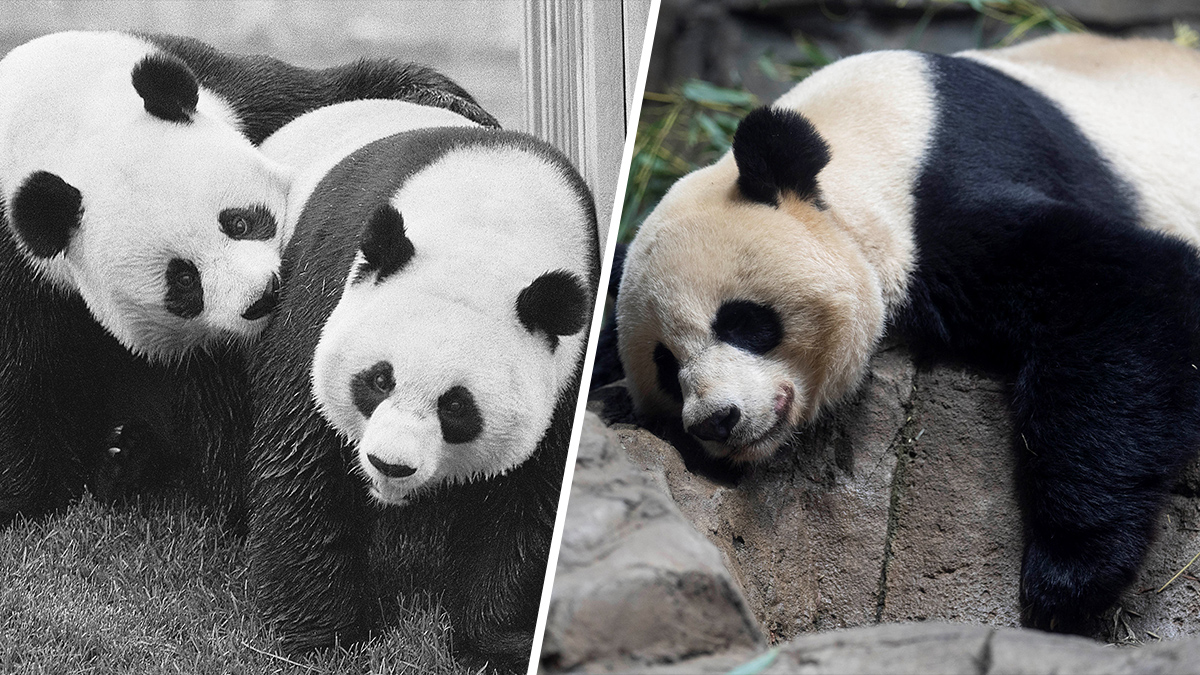For residents of Washington, D.C., the giant pandas at the Smithsonian National Zoo and Conservation Biology Institute are built into the city's identity. The bears have been living at the zoo for over 50 years, and every announcement — from panda pregnancies to cub births to birthday celebrations — gets notice.
But one of the latest panda announcements has D.C. residents feeling sad and nostalgic: On Wednesday, Nov. 8, all three of the pandas that call the National Zoo home are leaving.
Here's what to know about the giant pandas and their departure from the District.
Where will the pandas go?
We've got the news you need to know to start your day. Sign up for the First & 4Most morning newsletter — delivered to your inbox daily. Sign up here.
Tian Tian, age 26; Mei Xiang, age 25; and Xiao Qi Ji, age 3, will board their plane and travel to the China Wildlife Conservation Association.
It's basically "a panda base, if you will," according to Bryan Amaral, senior curator at the National Zoo.
"It's a place where they have lots and lots of giant pandas, very similar to what you would see -- how our giant pandas live here, very similar to that," Amaral said. "They just have a lot more giant pandas than we have. Where we have elephants and, you know, all kinds of other things, they have just pandas."
But why are the pandas leaving D.C. in the first place?
The panda agreement

Since the beginning of the research exchange program, the pandas have always served as a kind of soft diplomacy between China and the U.S.
The first pair of pandas, Ling-Ling and Hsing-Hsing, were gifted in 1972 to commemorate President Richard Nixon's trip to China that year.
The second pair, Mei Xiang and Tian Tian, have called the zoo home since 2000 when they were loaned to the Smithsonian Institution by the Chinese government.
An agreement with China in 2000 "stipulated [Mei Xiang and Tian Tian] would live at the Zoo for 10 years in exchange for $10 million," according to the zoo's website.
A decade later, the Smithsonian and the China Wildlife Conservation Association signed a new Giant Panda Cooperative Research and Breeding Agreement in January 2011. That agreement stated the pandas would stay at the zoo until December 2015.
The contract was extended to 2020, then again to 2023, shortly before each previous contract expired.
According to the National Zoo, all three giant pandas are leaving earlier than the contract's expiration date of Dec. 7.
And so far, the zoo hasn't shared any insight into when the next round of pandas will arrive — or if there will even be more pandas on the way.
The pandas are leaving D.C. at a time when, according to the Associated Press, there's a larger trend of China pulling back its pandas from multiple Western zoos as their agreements expire.
Despite the links to U.S.-China diplomacy, the negotiations are researcher-to-researcher and not based in politics, Zoo Director Brandie Smith told News4.
"We're a bunch of scientists; we're a bunch of animal people," Smith said. "This is not a political conversation. This is absolutely a conversation between colleagues talking about, what's best for the overall program, and also, what can be best for individual animals?"
For now, it appears that a return to the China Wildlife Conservation Association is the answer.
What will happen to the pandas?
"As per our agreement with our Chinese colleagues, [the pandas] are to go back to China by the end of the year," Amaral told News4 on Aug. 21, during the birthday celebration for Xiao Qi Ji. "So, we're just fulfilling that obligation."
To get to the panda base in China, Xiao Qi Ji, Mei Xiang and Tian Tian will have to fly to the other side of the globe. But the three pandas will be well-prepared for the journey, with National Zoo staff traveling alongside them.
The two older pandas will get "a luxurious retirement," while Xiao Qi Ji might find his own mate in a place with more pandas, Smith said.
Are the pandas ready for the trip?
The trip may not be the most fun, and it may be "logistically challenging," Amaral said, but "we prepare them, we train them to go into their specially designed transport containers, and it should be no big deal."
The direct flight bringing them back will be "as short as possible, just like we would all appreciate," Amaral said.
And while 3 years old may sound young to undertake such a journey from a person's perspective, in panda years, Xiao Qi Ji is "a college kid," Amaral said.
"He's way old enough to handle all this kind of stuff on his own. He's actually our largest cub at his age that we've had at this point. So he's more than ready to tackle the world on his own now," Amaral told News4.
Much like a college kid moving out, it's a big change for the pandas and for their caretakers.
"I see him sometimes and it takes me a second to realize that our little baby is now grown up and as big as his parents," Smith told News4.
She, too, knows that Xiao Qi Ji is ready to go.
"We prepare for this, you know," Smith said. "The success for these animals is to grow up, to return to China, to be part of the bigger breeding program and make more pandas."
"Our goal is to save a species," she added. "The fact that we can have giant pandas here and everybody gets to help us and enjoy it, that's just an extra bonus."
Will the National Zoo get more pandas?
Smith is "optimistic" about pandas returning to the National Zoo, though an exact timeline isn't clear, yet.
Any intermediate time between panda residents will be used to improve the panda habitat, adding things like extra climbing structures and better air conditioning and smoke detection systems.
"No matter what happens, we are going to continue our giant panda conservation work, the stuff that we are doing, you know, in the field to save pandas, to save the species and our hopes," Smith said. "My dream is that giant pandas will return to the National Zoo sometime in the near future."
If and when more giant pandas arrive at the zoo, history suggests they'll be welcomed with open arms and celebrated every step of the way.
Will there be a goodbye party for the Smithsonian's pandas?
News4 will have live team coverage of the pandas' full send-off on Wednesday.
The National Zoo hosted a "Panda Palooza" from Sept. 23 to Oct. 1, offering a chance to say goodbye to the pandas before they leave D.C.
Even if you missed Panda Palooza, you still have a few weeks to watch the pandas tumble, eat bamboo and nap.
Timed-entry passes are required to enter the National Zoo, and include admission to the panda area. Entry passes free, and you can get them online.
Want to know what's up for your weekend? Sign up for The Weekend Scene, our newsletter about events, experiences and adventures for you and for your family around the DMV.



